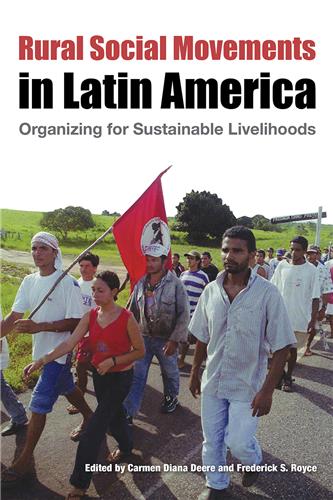Vieques, the Navy, and Puerto Rican Politics
Amílcar Antonio Barreto
Foreword by Felix V. Matos Rodriguez, Series Editor
Hardcover: $59.95
"This book highlights a political struggle engaged in by Puerto Ricans which raises attention regarding the inconsistencies between the United States as a democratic society and its treatment of a nation that continues to be colonized."--James Jennings, Tufts University
In this analysis of the dispute over the U.S. Navy's bombing range in Vieques, Puerto Rico, Amilcar Barreto looks at the political fallout from the accidental killing of a civilian in 1999, including its impact on Puerto Rican nationalism and ethnic mobilization. In so doing, he finds in the Vieques crisis a metaphor for a larger set of Puerto Rican crises and conflicts.
Barreto sets the scene for understanding why Vieques has become a defining protest issue in Puerto Rican politics by providing a comprehensive historical account of protest by Puerto Ricans living in Puerto Rico and in the United States and by telling the story of the island's nagging colonial status under the United States. While the political nature of the Vieques issue remains the focus of the book, he highlights its military aspects, particularly the policy stances of the U.S. Navy. He demonstrates how the U.S. military in the Vieques crisis became not just a catalyst for but an unwitting accomplice in the process of Puerto Rican ethnic mobilization, helping to set the stage for the emergence of a more vigorous and militant cultural nationalism. Barreto also supplies a credible explanation for the surprisingly consensual reaction among Puerto Ricans of all political stripes to what many observers regarded as an unjust assault on the life and livelihood of Vieques residents and an example of U.S. political arrogance.
In the course of identifying Vieques as a defining protest issue in Puerto Rican politics, Barreto avoids a weakness common to other treatments of the island's politics by documenting the links between protest and activism in Puerto Rico and in the United States.
Amilcar Antonio Barreto is assistant professor of political science at Northeastern University.
In this analysis of the dispute over the U.S. Navy's bombing range in Vieques, Puerto Rico, Amilcar Barreto looks at the political fallout from the accidental killing of a civilian in 1999, including its impact on Puerto Rican nationalism and ethnic mobilization. In so doing, he finds in the Vieques crisis a metaphor for a larger set of Puerto Rican crises and conflicts.
Barreto sets the scene for understanding why Vieques has become a defining protest issue in Puerto Rican politics by providing a comprehensive historical account of protest by Puerto Ricans living in Puerto Rico and in the United States and by telling the story of the island's nagging colonial status under the United States. While the political nature of the Vieques issue remains the focus of the book, he highlights its military aspects, particularly the policy stances of the U.S. Navy. He demonstrates how the U.S. military in the Vieques crisis became not just a catalyst for but an unwitting accomplice in the process of Puerto Rican ethnic mobilization, helping to set the stage for the emergence of a more vigorous and militant cultural nationalism. Barreto also supplies a credible explanation for the surprisingly consensual reaction among Puerto Ricans of all political stripes to what many observers regarded as an unjust assault on the life and livelihood of Vieques residents and an example of U.S. political arrogance.
In the course of identifying Vieques as a defining protest issue in Puerto Rican politics, Barreto avoids a weakness common to other treatments of the island's politics by documenting the links between protest and activism in Puerto Rico and in the United States.
Amilcar Antonio Barreto is assistant professor of political science at Northeastern University.
No Sample Chapter Available
"the reader unacquainted with the colonial situation of Puerto Rico will benefit from the historical perspective offered, and will be able to place the Vieques struggle in context, as one instance in a long sequence of mobilizatoins of Puerto Rican affirmation in the mainland." - Journal of the Center for Puerto Rican Studies
--Journal of the Center for Puerto Rican Studies
"Barreto's book is an important contribution to discussions about the meaning and future of Vieques, of Puerto Rico, and Puerto Rican citizens of the United States."
--H-LatAm
"A useful, succinct introduction to the recent Vieques controversy for readers with little prior knowledge of Puerto Rico."
--New West Indian Guide












